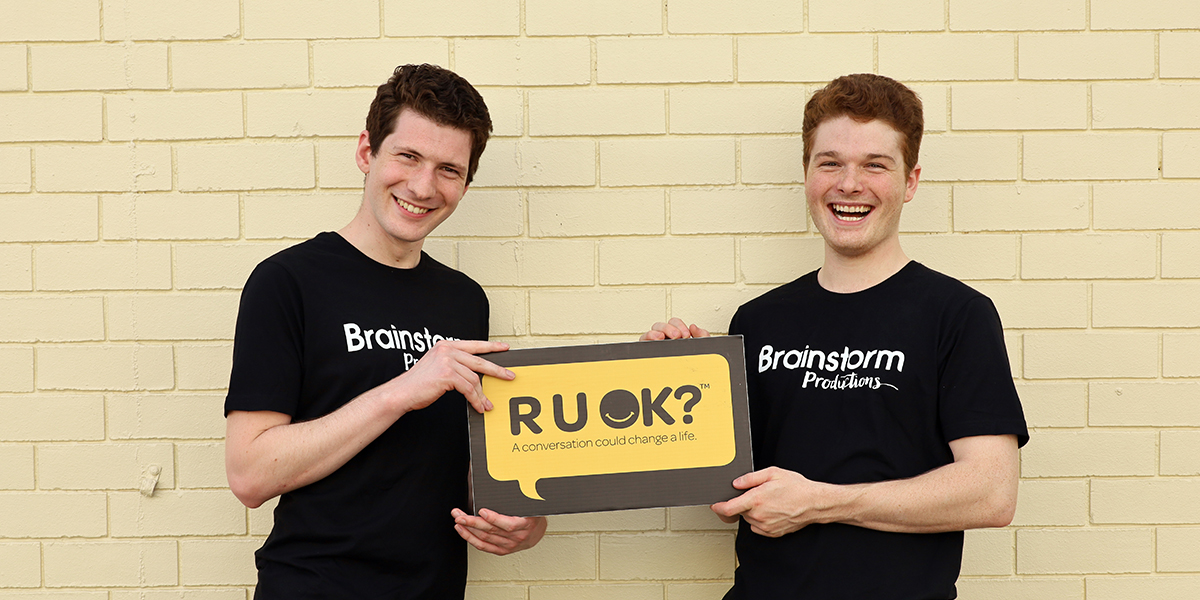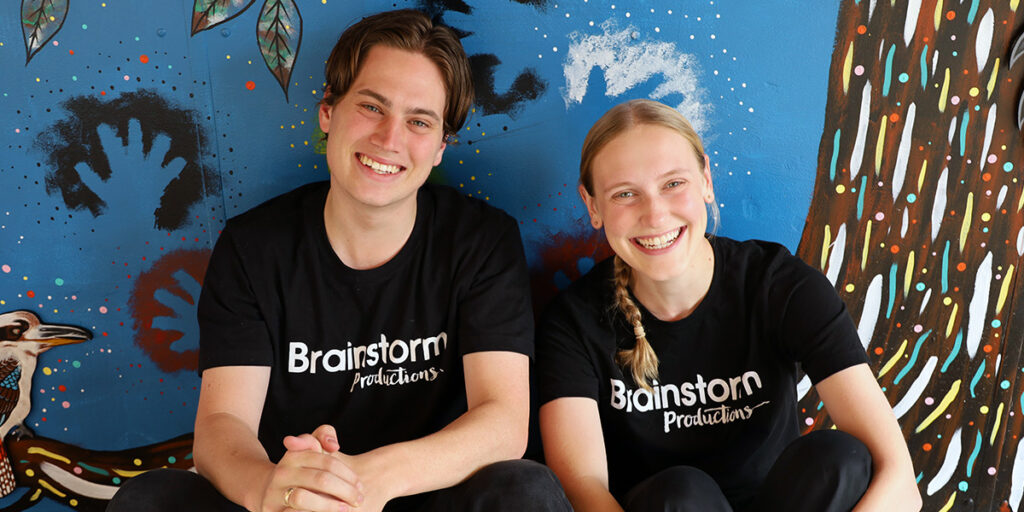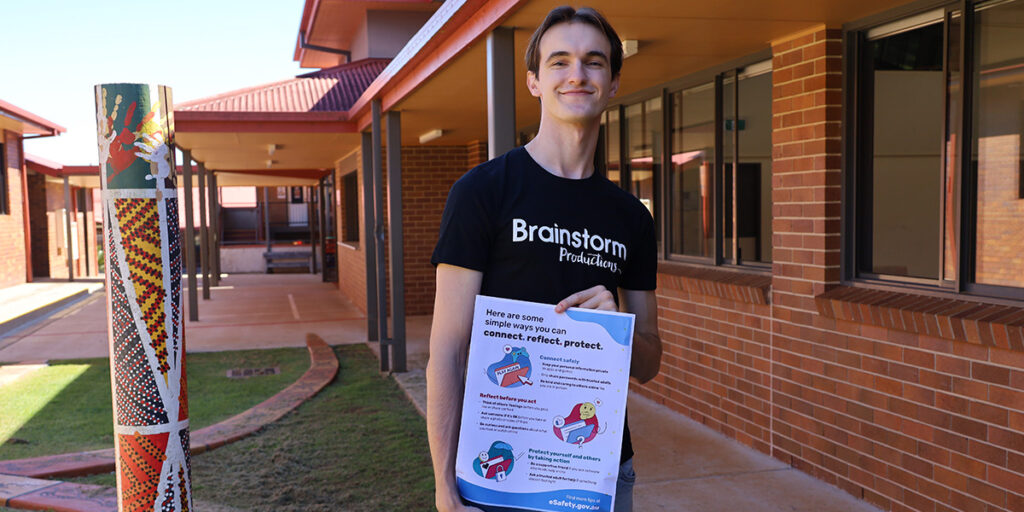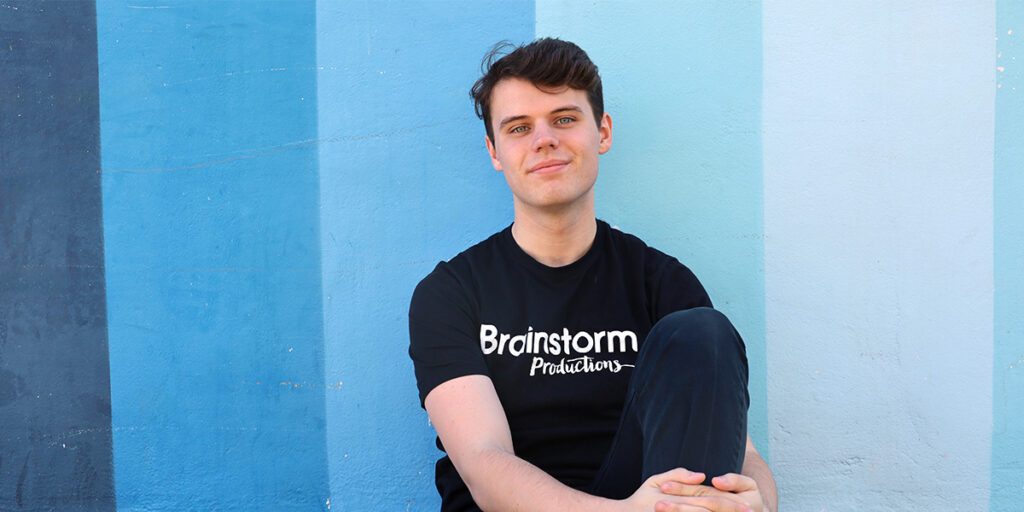For young people, the most meaningful support often comes from their peers. On R U OK?Day 2024, which falls on Thursday, 12 September, the focus is on empowering everyone in the community to have regular, meaningful conversations about life —not just on one day but any day.
The theme, “Ask R U OK any day,” equips students with the confidence and skills needed to check in with their friends and offer support in age-appropriate ways, with the aim of building stronger and more authentic connections.
Why Teaching Peer Support Matters
Many young people feel more comfortable confiding in their friends before turning to adults, especially with concerns related to school pressure, relationships, or self-esteem. This means that peers are often the first to notice when another young person is struggling. By teaching students how to ask “Are you OK?” and how to respond effectively, we can provide them with lifelong skills that will enhance their emotional intelligence, empathy and relationships.

Teaching Students to Ask R U OK?
- Active listening: Start by teaching students how to be active listeners. Use group activities to demonstrate how body language, eye contact, and giving their full attention can make a big difference when someone is opening up. You can role-play different scenarios to help students practice the 4 steps of an R U OK? conversation: Ask, Listen, Encourage Action, Check in.
- Recognising the signs: Educate students on the signs that a peer might not be OK. Discuss common indicators such as withdrawing from social activities, changes in behaviour, or expressions of distress. Empower students to recognize these signs and feel confident in approaching their peers with care.
- Fostering empathy and compassion: Help students understand that it’s OK not to have all the answers. What matters most is being there for their friends and listening without judgment. Activities like storytelling, journaling, or group discussions on empathy can encourage students to think more deeply about the impact of kindness and compassion in their daily interactions.
- Teaching safe boundaries: It’s important for students to know their limits and understand that supporting a friend doesn’t mean taking on the burden of solving their problems. Teach them when it’s appropriate to involve a trusted adult, such as a teacher, school counsellor, or a trusted family member.
The R U OK? Educator page has lots of curriculum-linked classroom resources to help you plan your lessons.
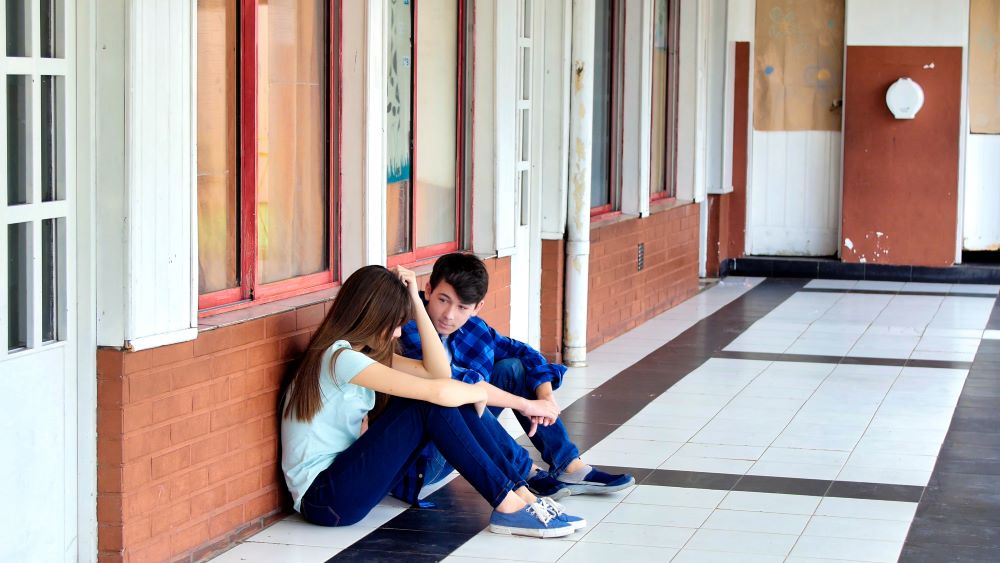
Encouraging Everyday Conversations
The 2024 theme, “Ask R U OK any day,” reinforces the message that conversations about mental health should happen regularly, not just during an awareness campaign. Remind students that meaningful conversations can happen in their daily interactions—during lunch, on the bus, or in class. These small, everyday moments can make a huge difference.
Practical Tips for Students:
- Start with empathy: Remind students that their goal is to support their friends, not fix their problems. Sometimes just listening can be the most helpful thing.
- Use open-ended questions: Instead of yes/no questions, encourage students to ask things like, “How have you been feeling lately?” or “Is there something on your mind?”
- Be patient: If a peer isn’t ready to talk, that’s OK. The important thing is that they know you care and that support is available when they are ready.
Building a Culture of Peer Support
When students feel empowered to support one another, the benefits ripple through the entire school community. By creating an environment of care and empathy, we build resilience—not only for individuals but for the whole group.
Parents, carers and educators all play a role in equipping young people with the knowledge, confidence and skills to look after each other, creating a supportive, inclusive community. Schools that focus on peer support help nurture students who are more self-aware, emotionally intelligent, and capable of supporting others throughout their lives.
R U OK?Day 2024 is a wonderful opportunity to start these conversations, with a message that lasts well beyond the day itself.
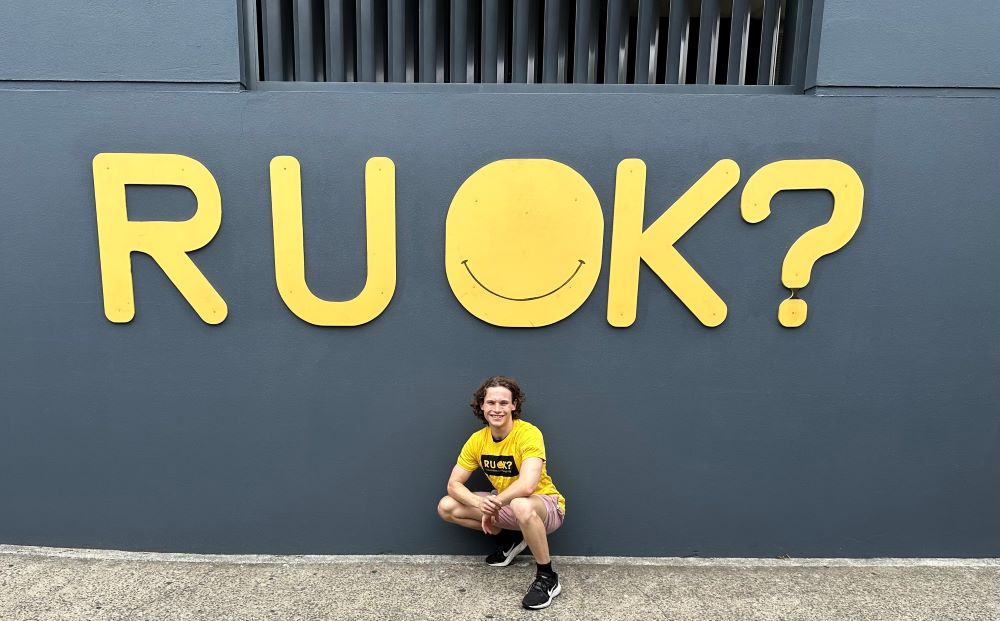
Using Educational Theatre to Foster Peer Support
Educational theatre performances can be a powerful way to encourage peer support and spark meaningful conversations among students. By watching realistic, relatable scenarios unfold on stage, students can see how to navigate difficult conversations, recognise signs of distress in others, and offer support in a thoughtful way.
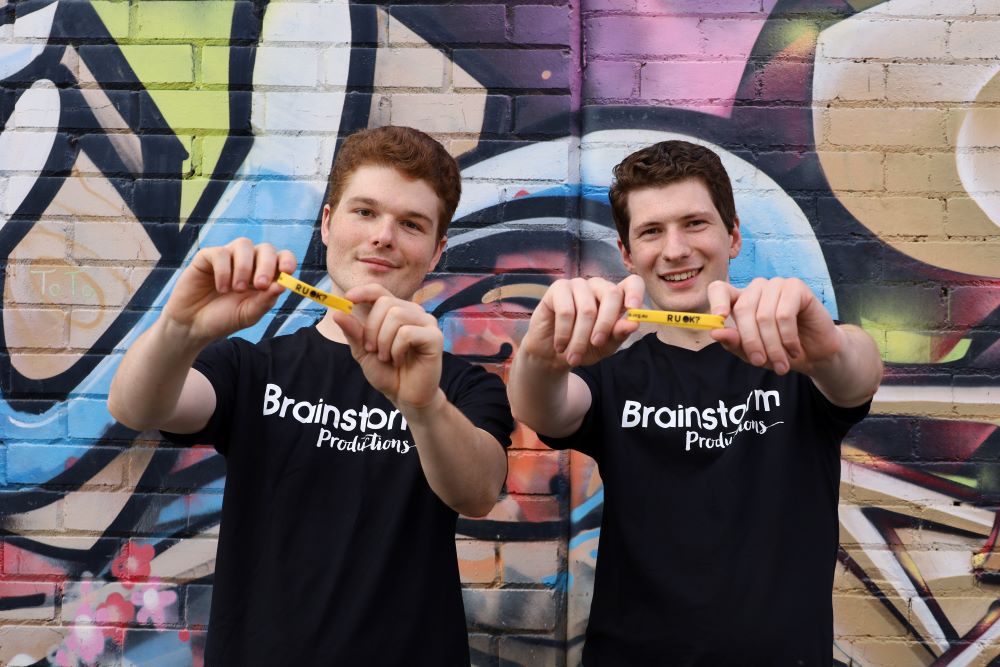
Our performances address common challenges students face, such as stress, anxiety, and bullying, providing valuable examples of how to ask “Are you OK?” and respond with empathy. The post-performance Q&A makes the message more impactful, prompting students to reflect on their own lives and empowering them to engage in regular, meaningful conversations with their peers.
Our student wellbeing programs also include curriculum-linked teaching resources to facilitate further learning and keep the conversations going in the classroom.
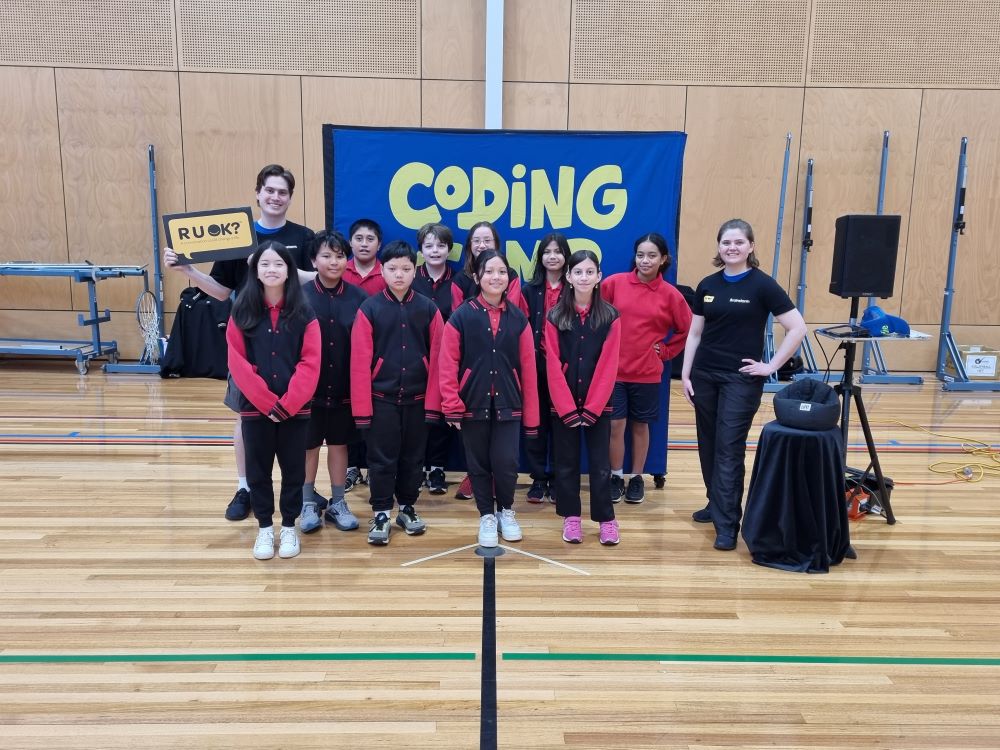
On R U OK?Day 2024, our teams of young actors will be performing in schools across NSW, Victoria, and Queensland, helping to amplify the message of peer support and encouraging students to regularly ask their friends, “Are you OK?” Students will be encouraged to work together to create a school community where everyone feels heard, valued and supported.
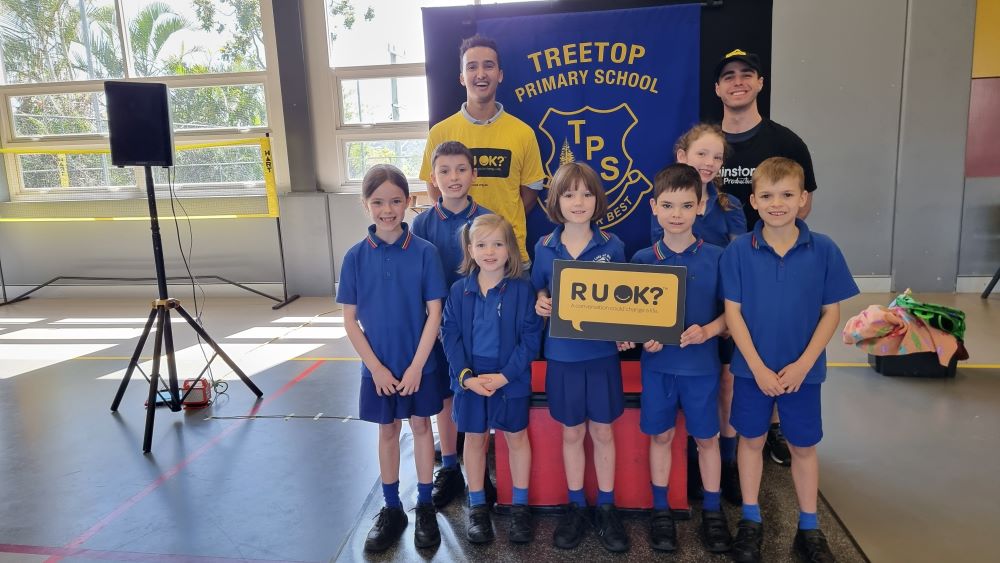
Together, we can support students to make a difference—one conversation at a time. Let’s give them the tools to support their friends, classmates and peers, any day of the year.
Learn more about our partnership with R U OK? and how Brainstorm Productions is sharing the message with schools on our R U OK? page. For more ideas and resources on how to get your school involved visit R U OK?

